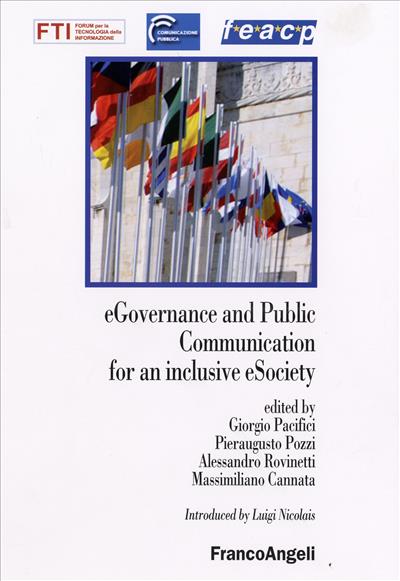
Fti-Forum per la Tecnologia dell'Informazione
A cura di: Giorgio Pacifici, Pieraugusto Pozzi, Alessandro Rovinetti, Massimiliano Cannata
Egovernance and public communication for an inclusive eSociety
The book outlines the main policy issues of eGovernance, pointing out the key role of ICT in designing a new relationship between citizens and institutions. It describes the evolution of the European eGovernment and Public Communication scenarios, underling the importance of adopting an integrated approach that merges technical and organizational innovation.
Pagine: 256
ISBN: 9788846495914
Edizione: 1a edizione 2008
Codice editore: 571.5.2
Disponibilità: Discreta




